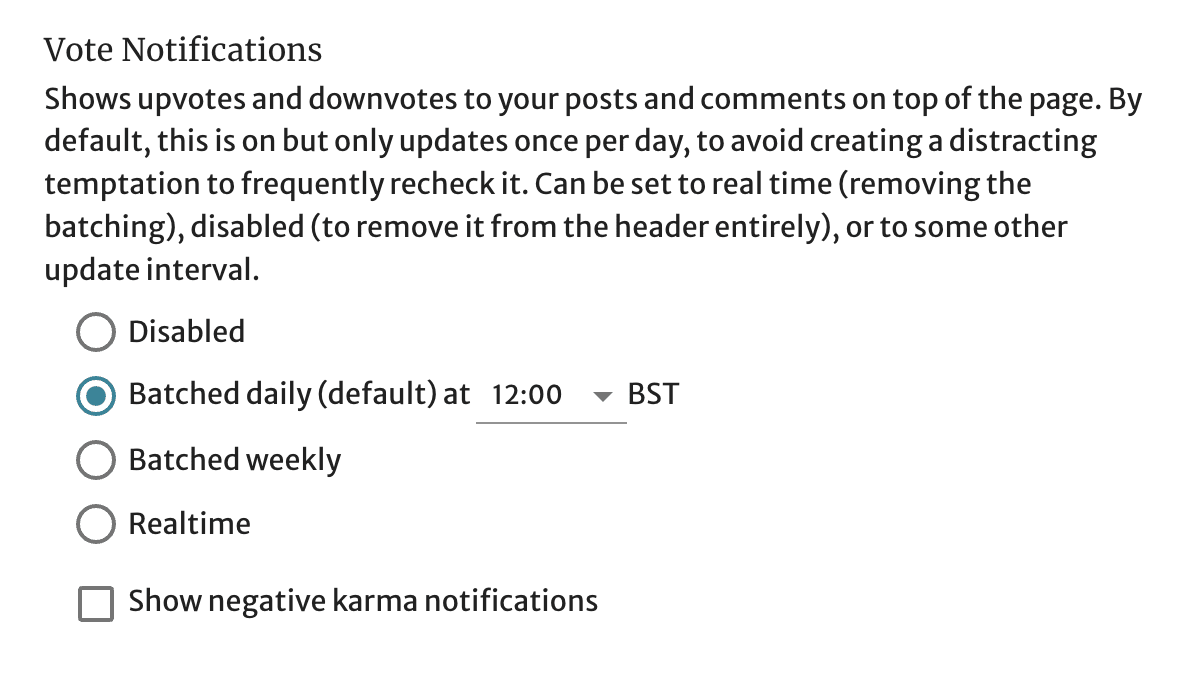TLDR:
When you publish a post, you might get comments. Some of them might be pointing you to additional resources or expressing gratitude for the post, while some might give constructive feedback and point out disagreements or errors. It can be nice to engage in a conversation to get to the bottom of the disagreement but, crucially: you don’t have to respond to every comment.
Epistemic status (how much you should trust me): Engaging with the Forum is my job, and I ran this by a few people, who all agreed with the argument. One person was surprised that this was an issue. So I’m more confident than usual.
Elaboration
Let’s say you’ve written a Forum post and finally gotten up the courage to publish it. You click the ‘Publish’ button, then anxiously avoid the Forum — but you occasionally check back in to glance at the karma count on your post.[1]

And then suddenly someone leaves a comment. Maybe they say:
You write [...], but I don’t think this accounts for [...]. I think this means [...].
We encourage collective truth-seeking on the Forum, and sometimes that involves disagreements and criticism or pointing out errors. The commenter — as long as they’re civil[2] — is providing a service by disagreeing or giving you feedback.
As a result, it can sometimes feel like you’re obliged to respond to long or substantive comments. You might feel that since the commenter has put lots of effort into their comment, it’s rude not to respond. Or, especially if the comment is critical, it can feel like you’ve been publicly challenged, and if you don’t respond, you’ve ‘lost’. Or you might worry that if you don’t reply, you’ll look like a coward who can’t acknowledge their errors.
These feelings are misguided. While it’s often helpful to engage in a conversation on the Forum and incorporate feedback into your posts,[3] it’s not always the best course of action, and this should not be an obligation or even a strong norm.
Some reasons you may not want to respond to comments
- You find it emotionally draining or stressful to engage in the conversation
- Responding takes valuable time that you could be spending on something else
- Keeping up with the conversation would distract you and harm your productivity
- You just don’t want to
Relatedly, there are some specific harms that arise from having a norm that people should always respond to comments:
- People respond to comments too much and are unhappy, waste their time, or misuse their energy as a result
- People don’t post in the first place because they don’t want to have to respond to all the comments
None of this means that Forum readers shouldn’t comment on posts! I think commenting is great. Just don’t be upset if the original poster does not respond.
And of course, there are many reasons for responding to comments — you just shouldn’t feel like you have to.
Conclusion & message
If you ever needed someone with some semblance of authority to tell you that it’s ok to leave comments unanswered — consider this your message of permission. Someone I know even struck a bargain with their partner, agreeing that they will pay a fine if they respond to any comment on their forum post within the first week. That doesn’t seem like a bad idea.
If you don’t want to engage with comments but feel awkward saying nothing, you can also share a link to this post and leave a comment response that just reads:
Thank you for your comment. I appreciate it, but will not engage further.
Thanks to those who prompted this post and gave feedback on it!
- ^
Beware over-identification with karma! Karma can be determined by tons of random things — from the time you posted to what else is going on or what’s in vogue on the Forum that week — and doesn’t track true impact very well. Plus, this all can feed into impostor syndrome.
Also, as a reminder: you can change how you get karma notifications (or even disable them entirely). Go to your account settings (hover over your username, find “Account Settings”), and then find the “Notifications” section and change “Vote Notifications” appropriately. I’ve left mine at the default — notifications once per day, and no notifications for negative karma.
- ^
If you get rude comments, please feel free to report them.
- ^
The classic example is Hauke Hillebrandt’s [updated] Global development interventions are generally more effective than climate change interventions, which was initially titled “Climate change interventions are generally more effective than global development interventions” and was significantly updated after a discussion in the comments. I think it’s great.
Another great (and more recent example): I was looking through the wrong end of the telescope.





I think it's plausible that the norm is overall a bit too strong or a bit too weak at the moment. I feel pretty bad about "no norm" though.